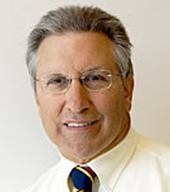KDBH: Use of Anti-hyperglycemic Agents With CVD Benefits
The management of type 2 diabetes to prevent cardiovascular disease has been focused on glycemic control and the use of drugs based on their ability to lower levels of glycemia. Listen to Robert H. Eckel, MD, and Christopher P. Cannon, MD, discuss the use of anti-hyperglycemic agents with CVD benefits.

Robert H. Eckel, MD
Robert Eckel, MD, is a Distinguished Alumnus of the University of Cincinnati College of Medicine and currently the Charles A. Boettcher II Endowed Chair in Atherosclerosis, Professor of Medicine with appointments in the Division of Endocrinology, Metabolism and Diabetes, Division of Cardiology, and professor of Physiology and Biophysics at the University of Anschutz Medical Campus, and director of the Lipid Clinic at the University of Colorado Hospital. He also was a member of the Scientific Advisory Council of the National Institute of Diabetes, Digestive and Kidney Diseases at the National Institutes of Health. In addition, he served as President of the North American Association for the Study of Obesity and then president of the American Heart Association.
Christopher P. Cannon, MD
Christopher P. Cannon, MD, is a Professor of Medicine at Harvard Medical School, and senior physician in the Cardiovascular Division at Brigham and Women’s Hospital. Dr. Cannon is currently working on clinical trials, registries and quality improvement projects in the fields of acute coronary syndromes, atrial fibrillation, diabetes, lipids and prevention, and has published over 1000 original articles, reviews or book chapters in the field of acute coronary syndromes and prevention and has authored or edited 18 books.